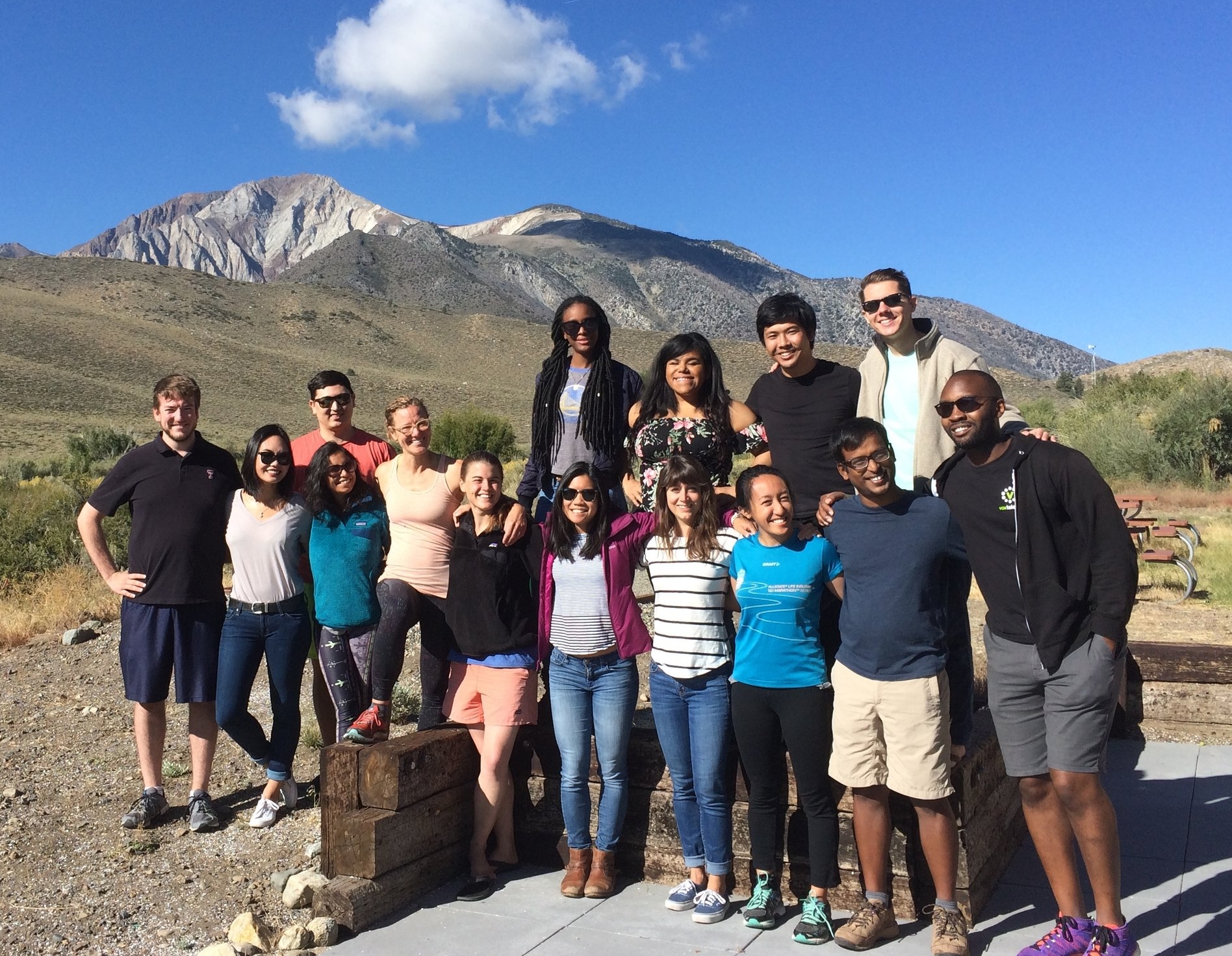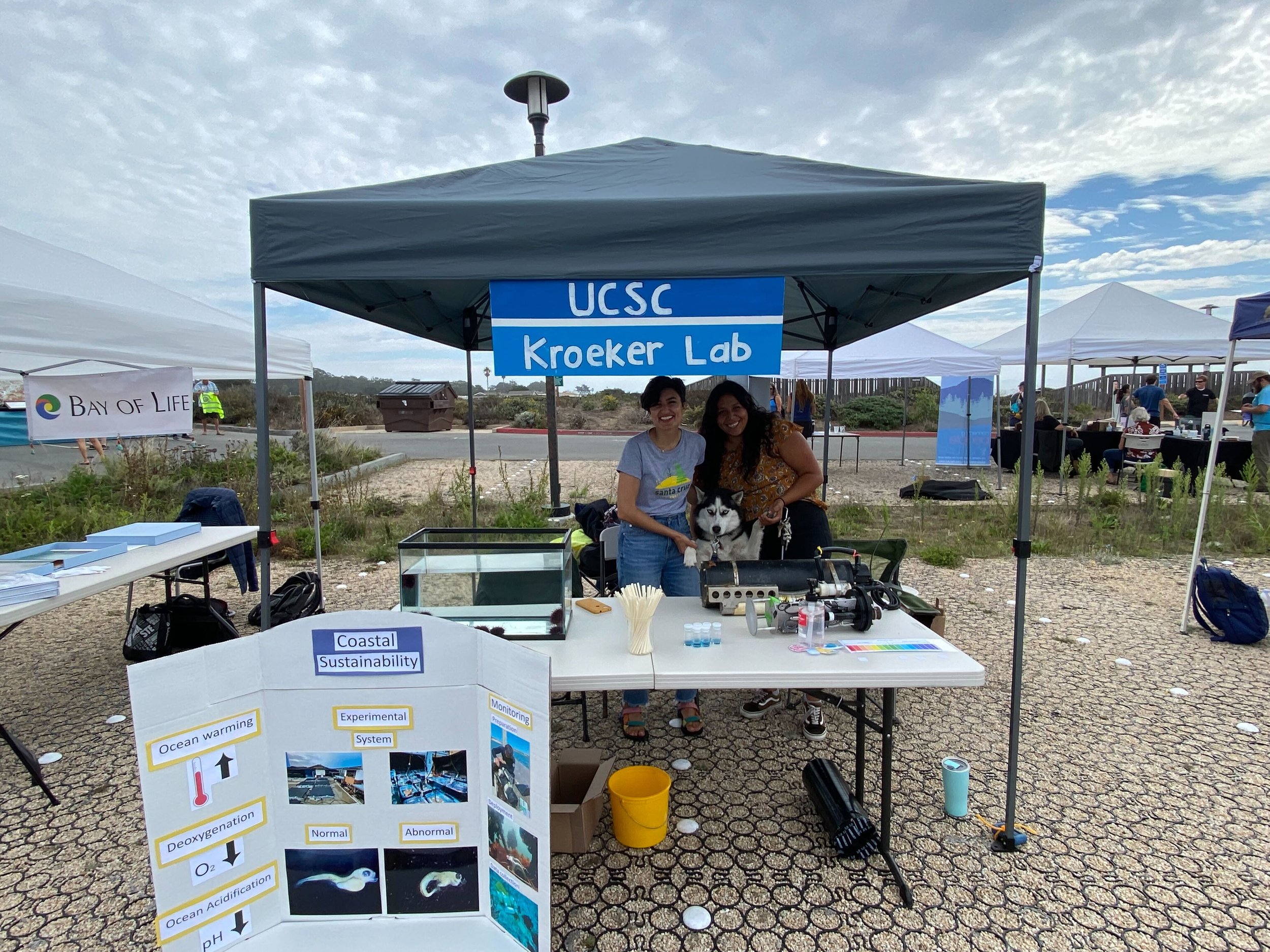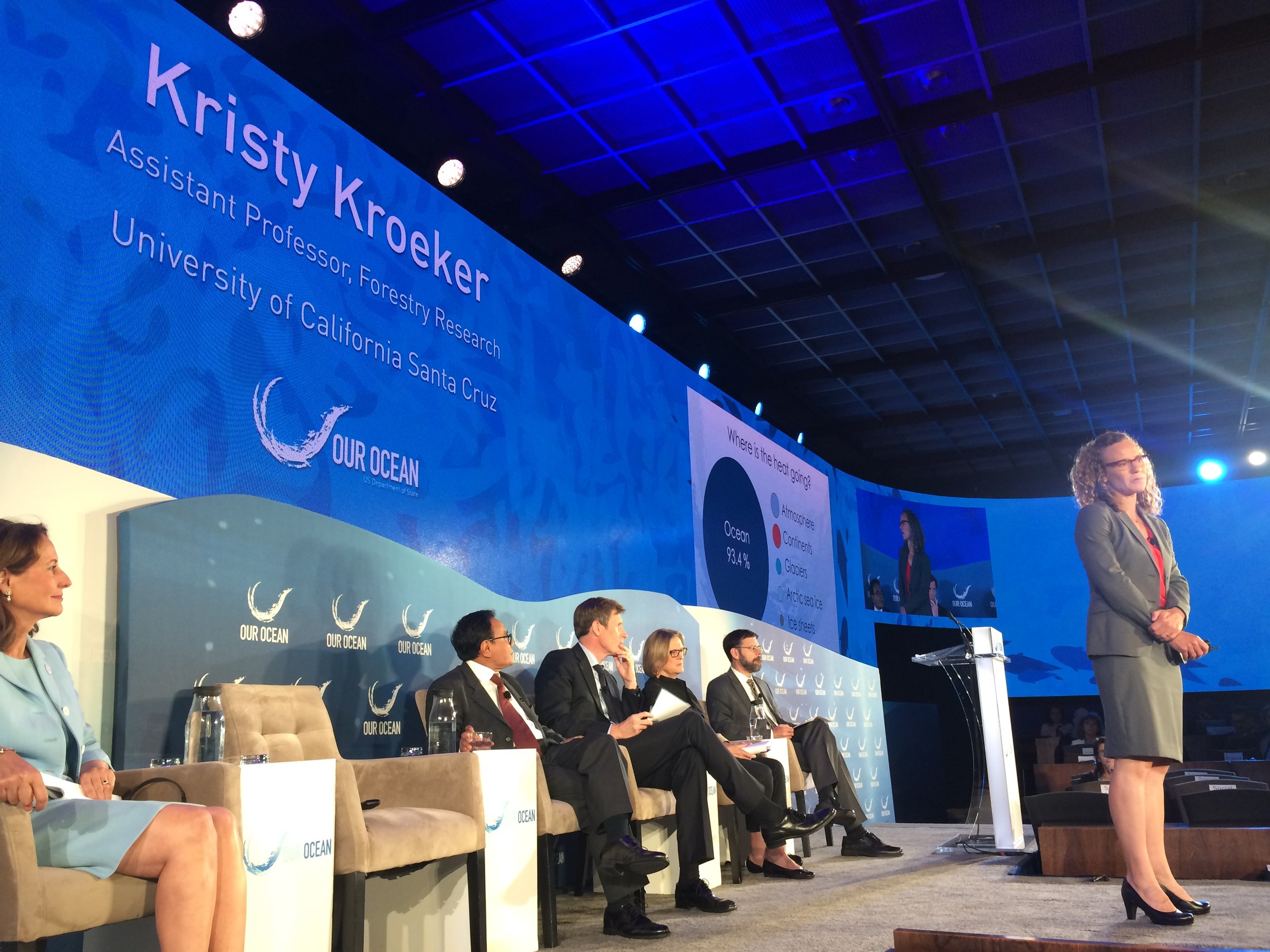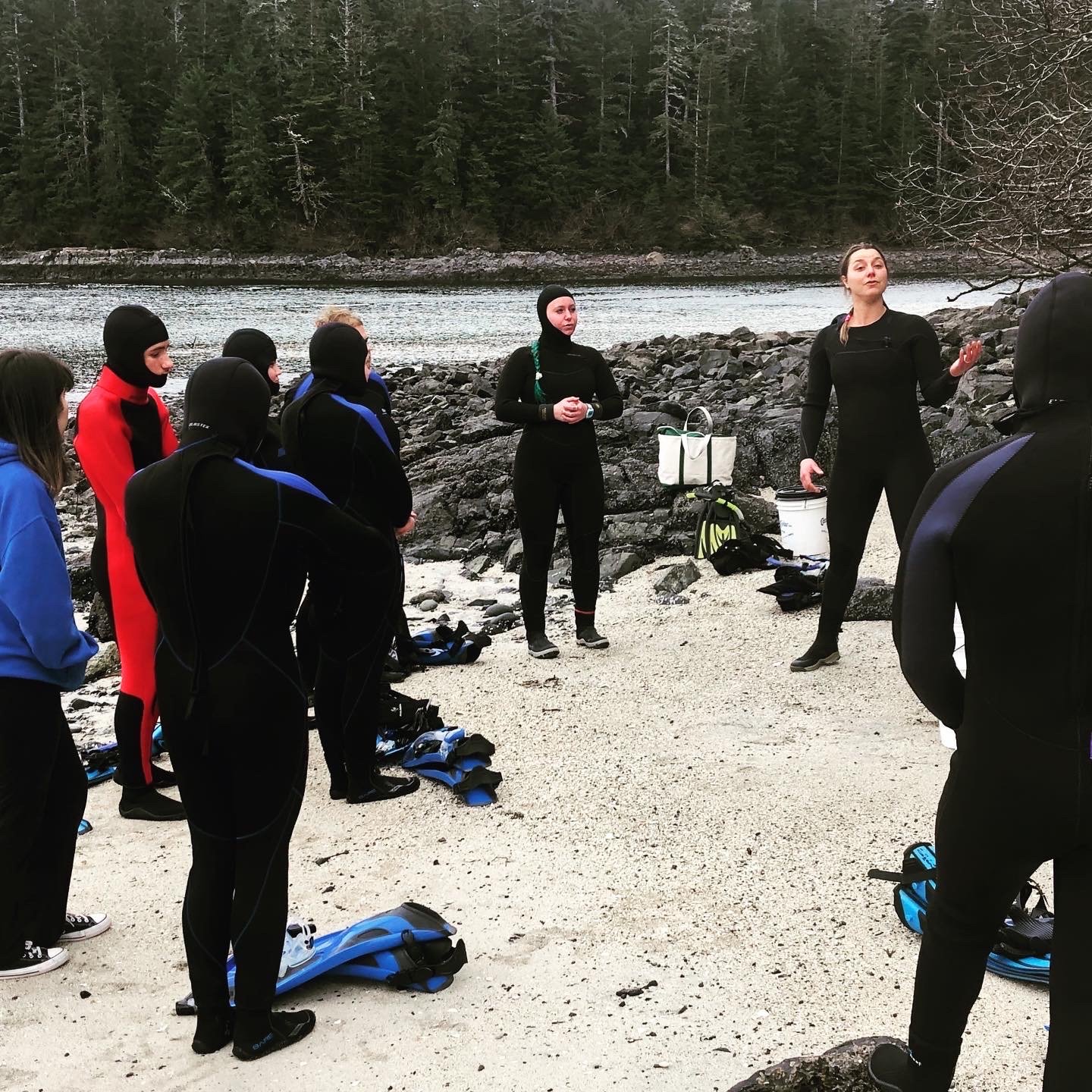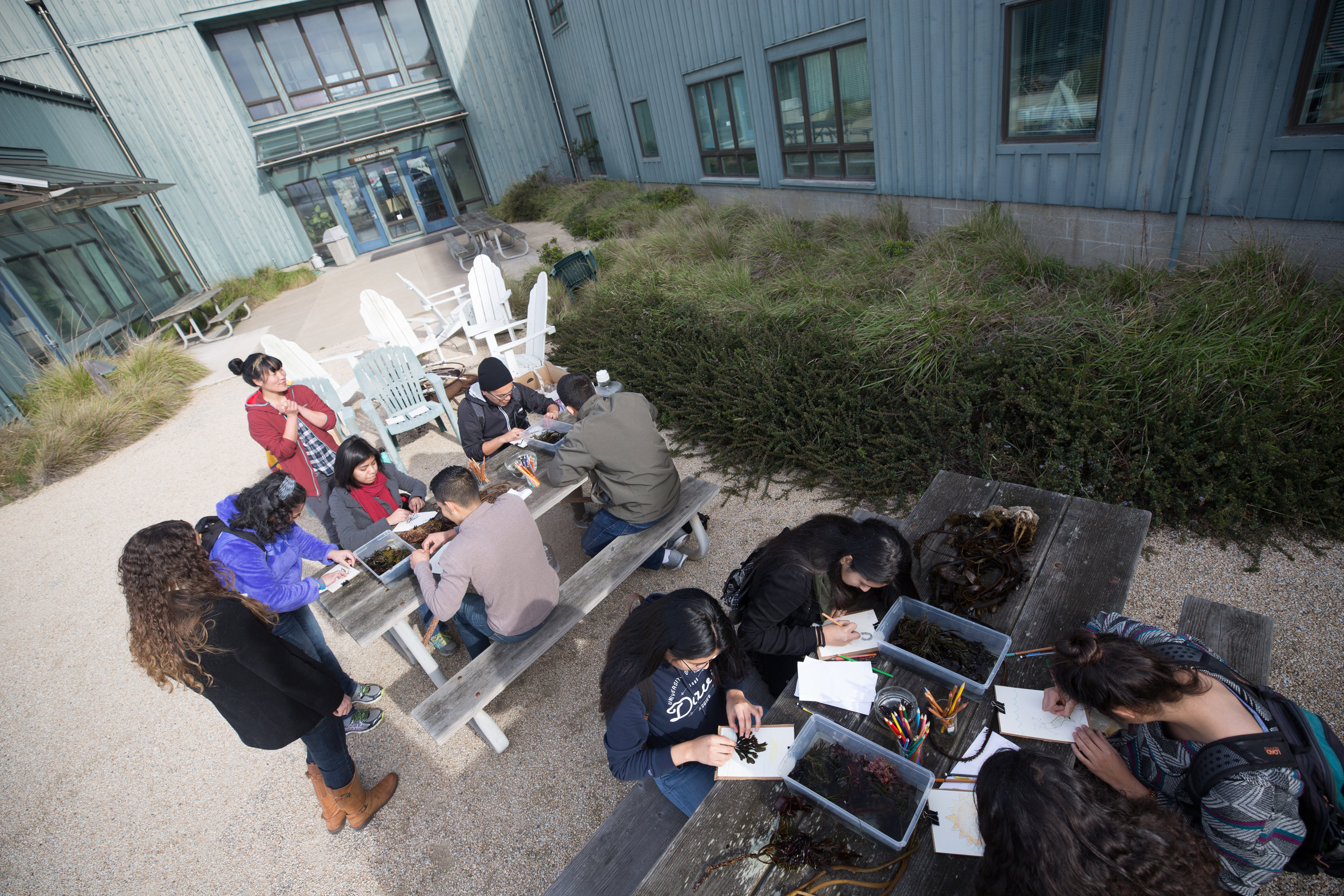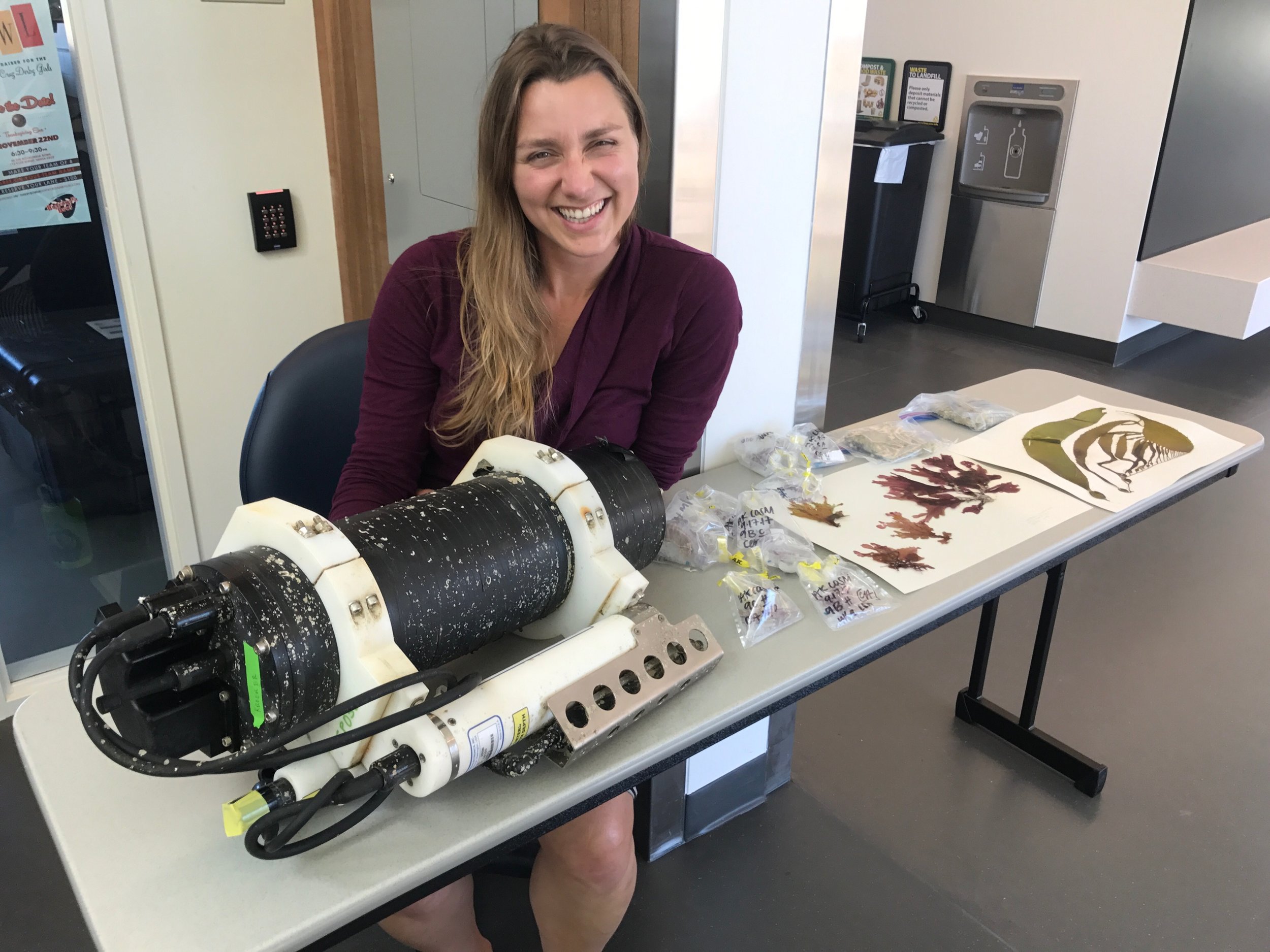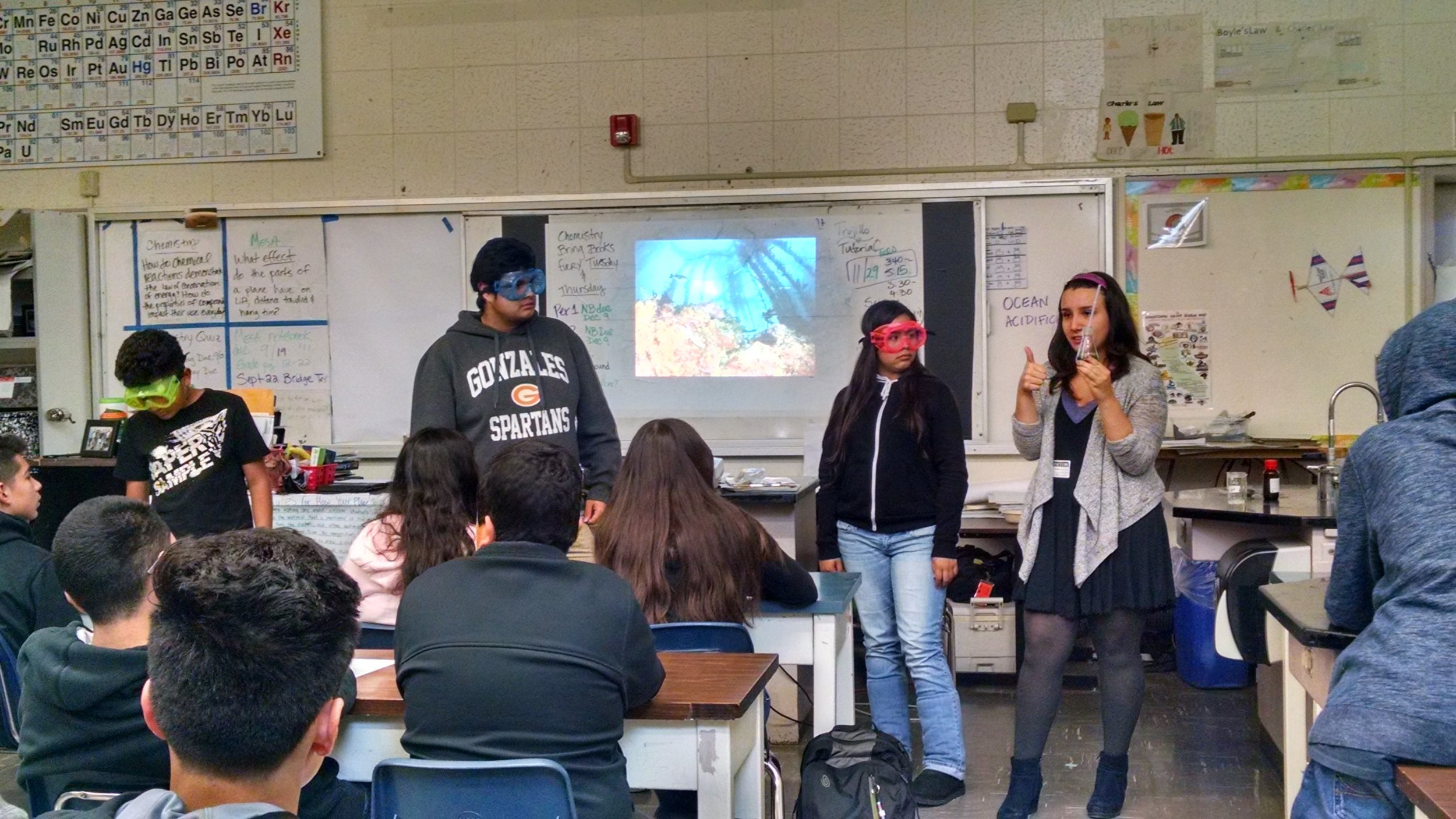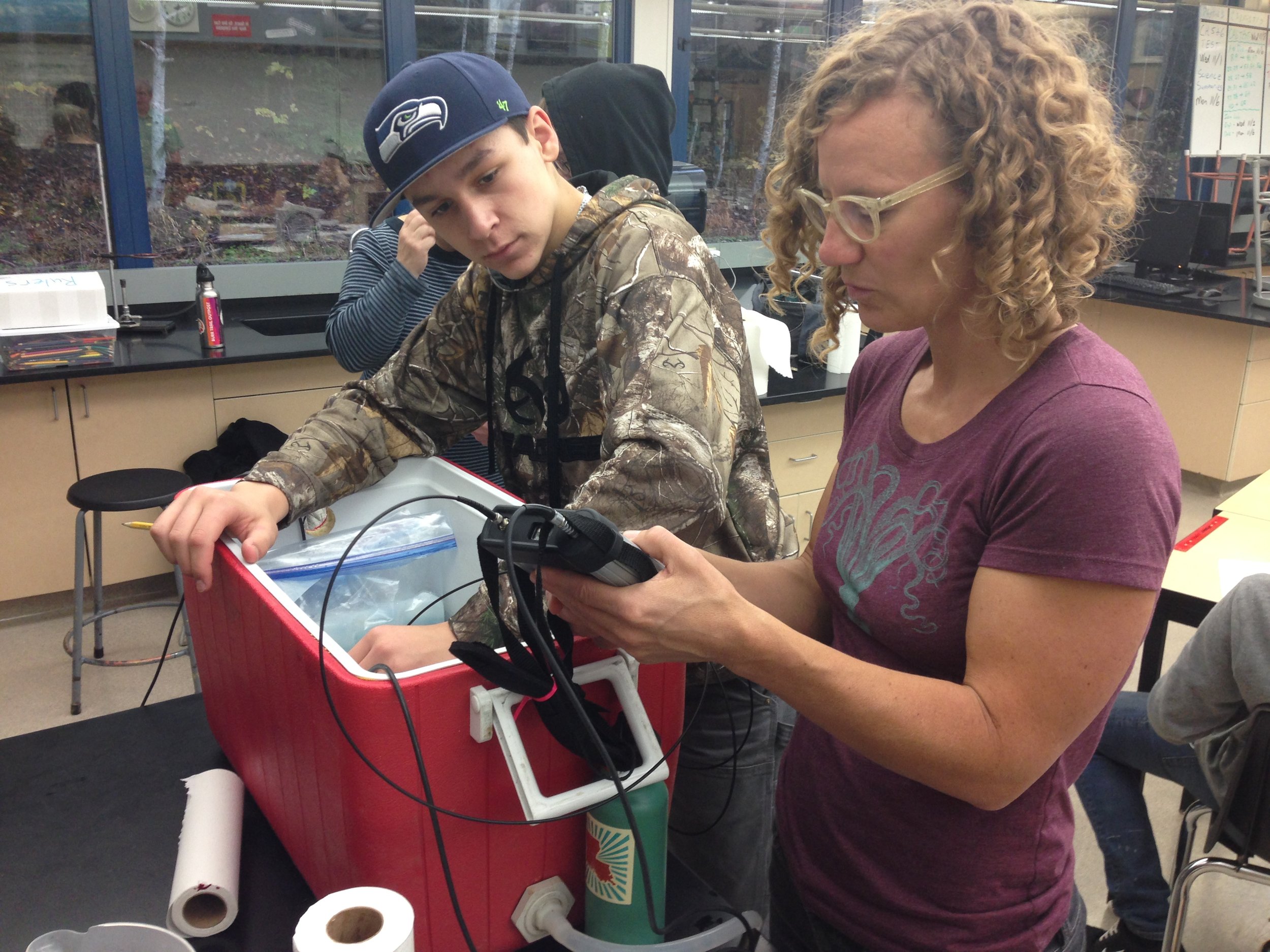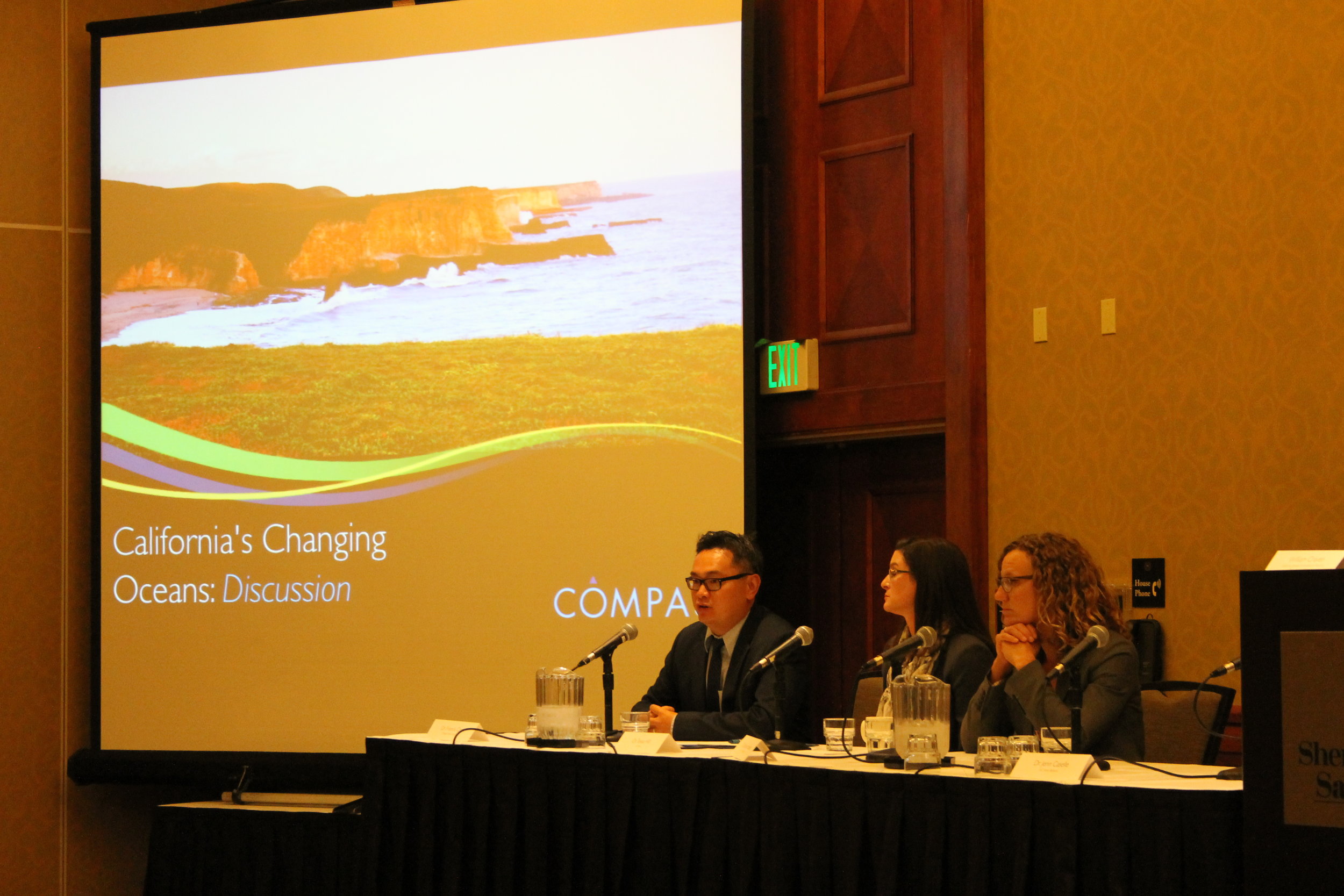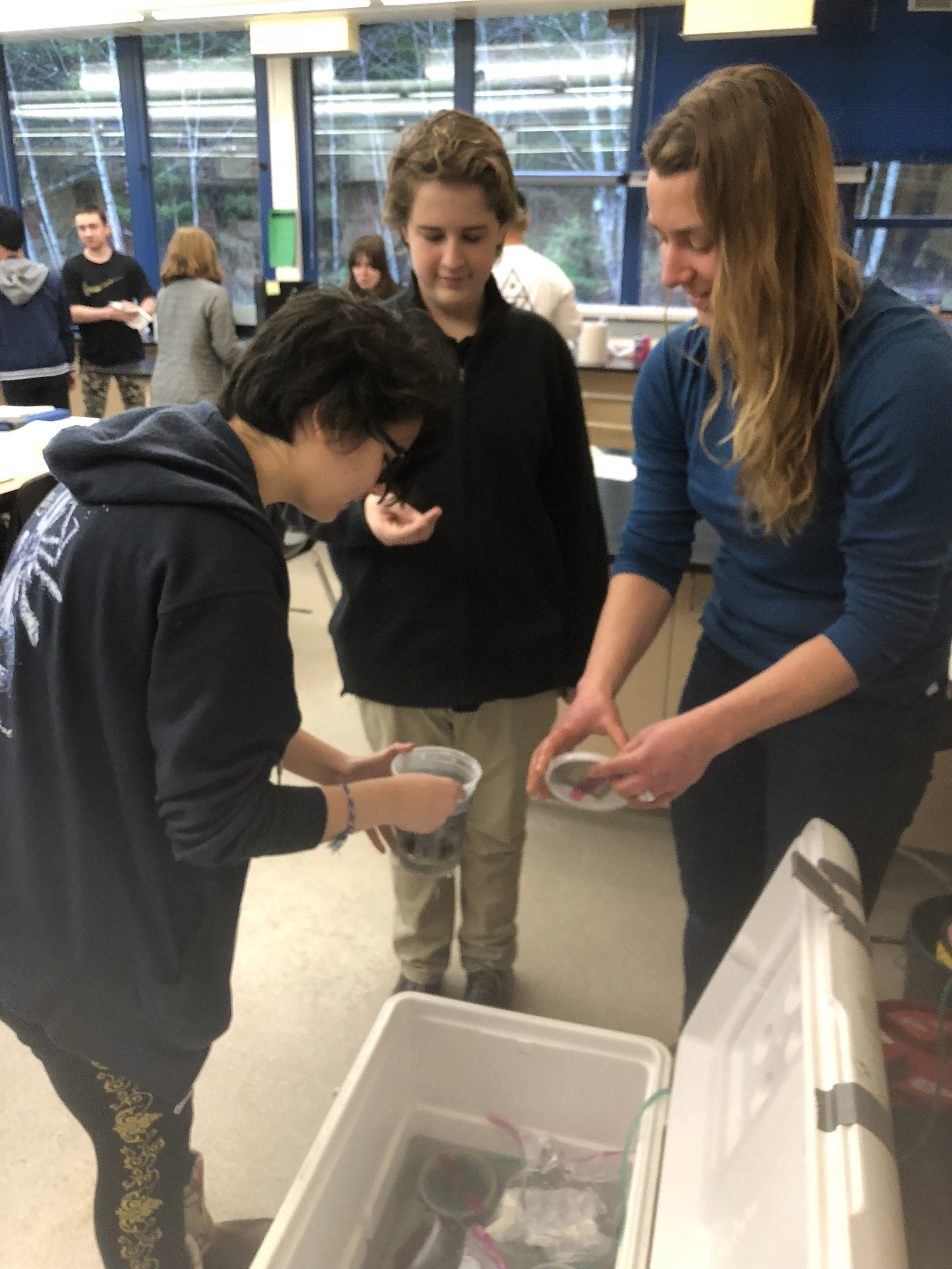For global issues such as environmental change, science can identify the problem, its effects, and a portfolio of potential solutions. Enactment of these solutions will require communication and collaboration across scientific disciplines and non-academic organizations. We are interested in using science to examine adaptation strategies and inform more effective management decisions around global change and human use of the ocean. To this end, we actively seek out opportunities to engage with industry stakeholders, resource managers, policy makers, and the general public.
Notable initiatives
Climate Engagement Program
The Climate Engagement Program at UC Santa Cruz was started by Dr. Kroeker in 2017 to train and support graduate students from diverse backgrounds undertaking climate change related research to effectively engage with broad audiences. As part of the UC Climate Action campaign, this program provides support for motivated graduate students to participate in a summer workshop focused on building communication and leadership skills for climate change engagement. As part of the program, students will develop an engagement plan for their own work and will receive structured support throughout the following year for taking action.
Website: https://climateengagement.sites.ucsc.edu/
Ocean Acidification International Coordination Center
The mission of the OA-ICC is to promote, facilitate and communicate global activities on ocean acidification, based on the understanding that international coordination is necessary to increase the impact of investments and research on this global process. Dr. Kroeker has been a member of the Science Advisory Board, as well as a member on the SOLAS/IMBER working group on ocean acidification, that coordinates closely with the OA-ICC, since 2016.
Website: https://www.iaea.org/ocean-acidification/
Intergovernmental Panel on Climate Change
The IPCC is the leading international body for communicating climate change research to policy makers. Dr. Kroeker’s research on ocean acidification is highlighted as a primary figure in the IPCC AR5. In addition, Dr. Kroeker is a contributing author for the Special Report on the Ocean and Cryosphere in a Changing Climate, to be finalized in September 2019.
Website: http://www.ipcc.ch/
Policy briefings and engagement
Dr. Kroeker is actively engaged in policy briefings and seminars for the regional and federal governing bodies. This includes speaking engagements and participation on panels for the California State Legislature on “Ocean Change,” as well as for United States Congress for “Tackling Acidification.” Kristy has recently served as plenary speaker and panelist for the Our Ocean Conference (2016), and plenary speaker and panelist for California Natural Resources Agency and California Governor’s Office annual Climate Change Symposium (2016).
Virtual Reality
Photo: Cody Karutz
The Virtual Human Interaction Lab at Stanford University built a virtual version of one of Kristy's study systems (i.e., volcanic CO2 vents off Ischia, Italy), which allows students, senators, and mall-goers to do a virtual “fly-through” of an acidified rocky reef ecosystem to learn about the ecological effects of ocean acidification. The Kroeker lab has taken the system into K-12 classrooms across CA, as well as to Washington DC for a congressional briefing.
COMMUNITY OUTREACH
The Kroeker lab strives to be proactive in engaging local communities with our research. From K-12 classroom visits to public lectures, field trips to workshops, public radio interviews to science cafes, we endeavor to share our research as well as learn from those whose lives, work, and recreation revolve around the marine resources that we study.

